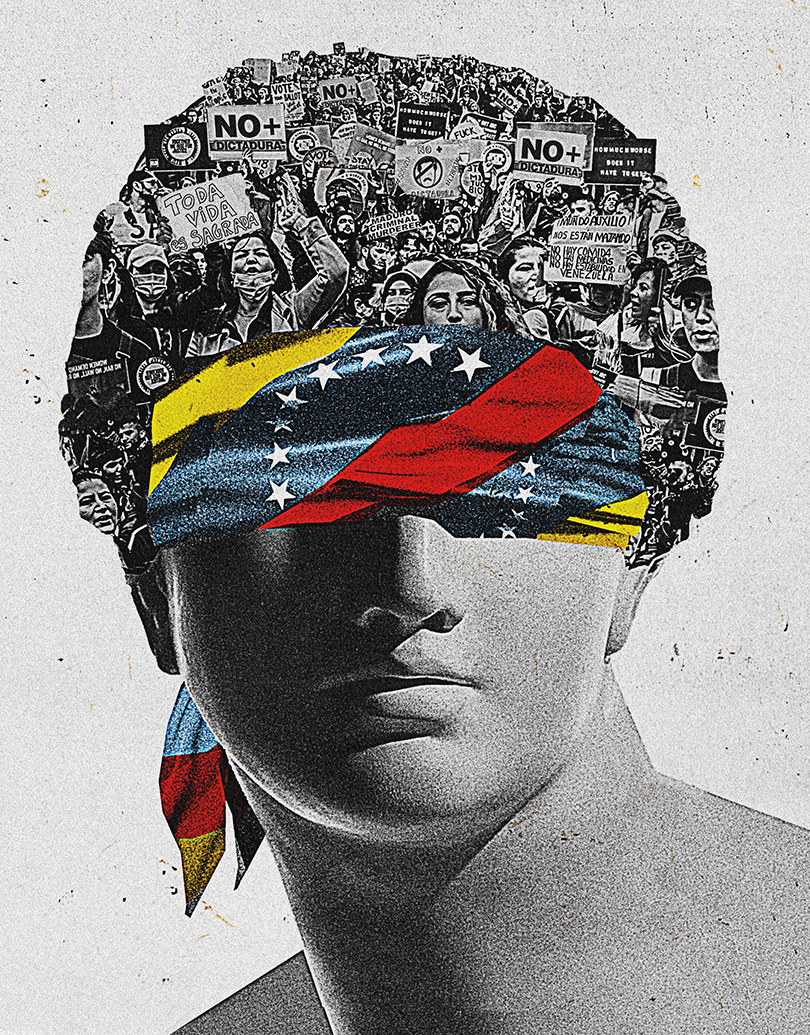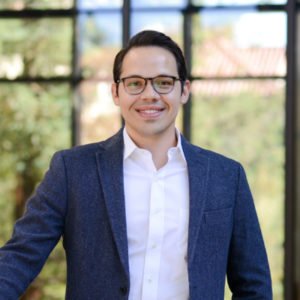When the Client Is Democracy
When students in Associate Professor Diego A. Zambrano’s Law and policy lab practicum met virtually with their clients to discuss a potential redesign of Venezuela’s judiciary, those clients—members of Venezuela’s National Assembly and political opponents of President Nicolás Maduro—were in hiding. Venezuela’s legislative building had just been taken over by Maduro’s security forces, and the lawmakers were all facing arrest.
“They were essentially being politically persecuted by the Maduro regime,” says Natalie Felsen, JD ’22, a student in Redesigning the Venezuelan Judiciary: The Venezuelan Constitutional Crisis during the winter and spring quarters of 2019-2020.

Zambrano, who grew up in Venezuela, and the students in his lab delivered on their promise: to compile a thorough report detailing proposed reforms to the Venezuelan judicial system when the authoritarian country was ready for a democratic transition. Today, unfortunately, that transition seems more remote; in 2021, Maduro’s party took control of the National Assembly in elections boycotted by members of the opposition.
In response to the setback, the lab did not disband; rather, it expanded. Last summer and fall, Zambrano worked with teaching assistant Christine Houle, JD ’23, to redesign the practicum, now called Global Trends in Judicial Reform. Instead of focusing on reforms specific to Venezuela, students in the 2021-2022 winter quarter conducted comparative research on 21st century judicial reforms in 10 countries: Albania, Armenia, Colombia, Ecuador, Ghana, Kenya, Kosovo, Malaysia, Mexico, and Peru. The idea, Zambrano says, is to create a “ready-set guide of best practices” for any country seeking to make its judicial system more democratic. Eventually, the lab plans to host and maintain a database that tracks judicial innovations—and ultimately to find a way to measure the success of such reforms.

“We want to grow into a larger resource,” Zambrano says. “We want Stanford to be a leader in bolstering democracy and the rule of law.”
Venezuela seemed poised for a democratic transition in 2019, after Juan Guaidó, the head of the National Assembly, assumed the presidency of his country and was promptly recognized as such by more than 50 countries, including the United States.
The genesis for Zambrano’s lab came after members of the Venezuelan opposition contacted him about a piece he wrote arguing that Guaidó’s legitimacy was supported by the Venezuelan Constitution. Zambrano discussed their request for help with his faculty colleagues, including former Dean and Professor Emeritus Paul Brest, who co-directs the Stanford Law and Policy Lab. When Zambrano learned that Venezuelan National Assembly member Juan Miguel Matheus was applying to be a fellow at the Stanford Constitutional Law Center, he recruited him to co-teach the first practicum.
While there has been considerable research on recent efforts by authoritarian governments to undermine judicial independence, Global Trends in Judicial Reform stands out for its emphasis on improvements to legal systems.
“We want to focus on positive reforms,” explains Zambrano, who is also exploring how his lab can work with Stanford’s Center on Democracy, Development and the Rule of Law. “What are the things countries are legitimately trying to do to enhance the rule of law and an independent judiciary?”
Houle, who interned at the U.S. State Department last summer and plans to return this fall, says she was immediately drawn to the lab’s objectives.
“This is a unique opportunity to uplift other stories and countries,” she says.
Students in the 2021-2022 lab interviewed residents in each of the 10 countries, sometimes tracking them down via Facebook or LinkedIn.
Zambrano says he was impressed by “how rich” the students’ knowledge of the countries was and “how entrepreneurial” they were in finding people to share their expertise and experiences.
In the coming quarters, he hopes to send students to conduct field research in countries where judicial reforms have taken or are taking place.
Felsen says the work she did as part of the 2019-2020 lab was “incredibly intellectually interesting,” but that the plight of the Venezuelan people, represented by their clients in the National Assembly, was always foremost in her mind.
“I was really conscious that the work was far removed from what would directly benefit Venezuelans in the near term,” she recalls. “The report represents a future we all hope for, as opposed to something that can be immediately implemented or utilized.”
Zambrano says the lab’s resources will be ready if and when Venezuelans need them.
“It’s really exciting,” he says, “to feel like the work we do at Stanford with students can be part of the conversation in defense of democracy.” SL
Rebecca Beyer is a former staff writer and editor for the Daily Journal.
